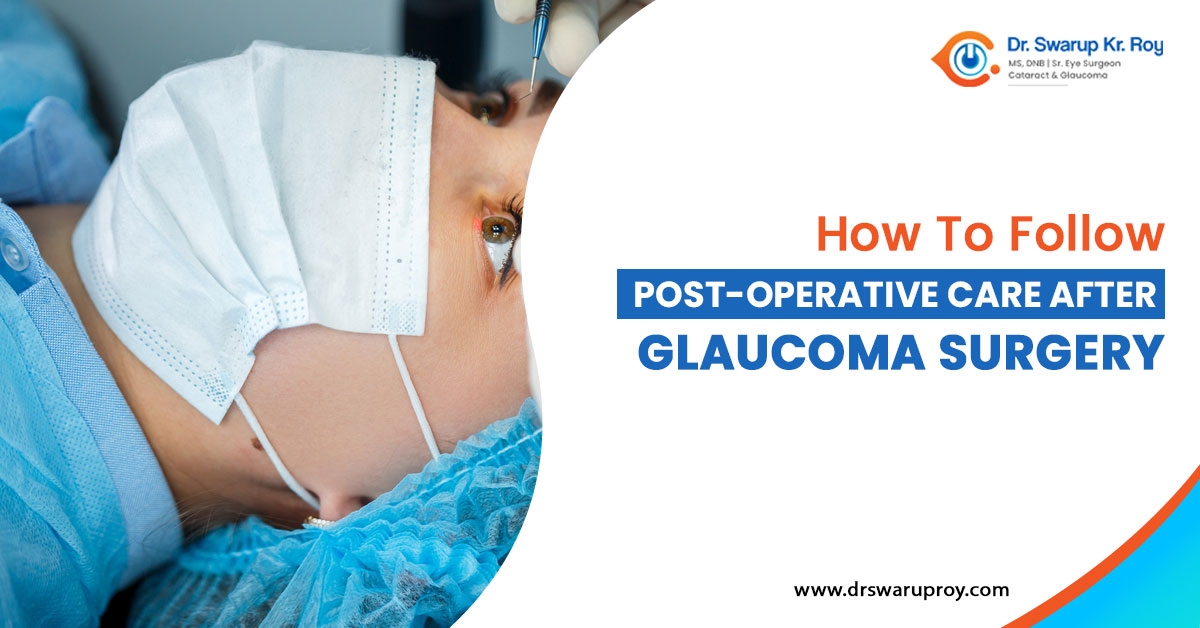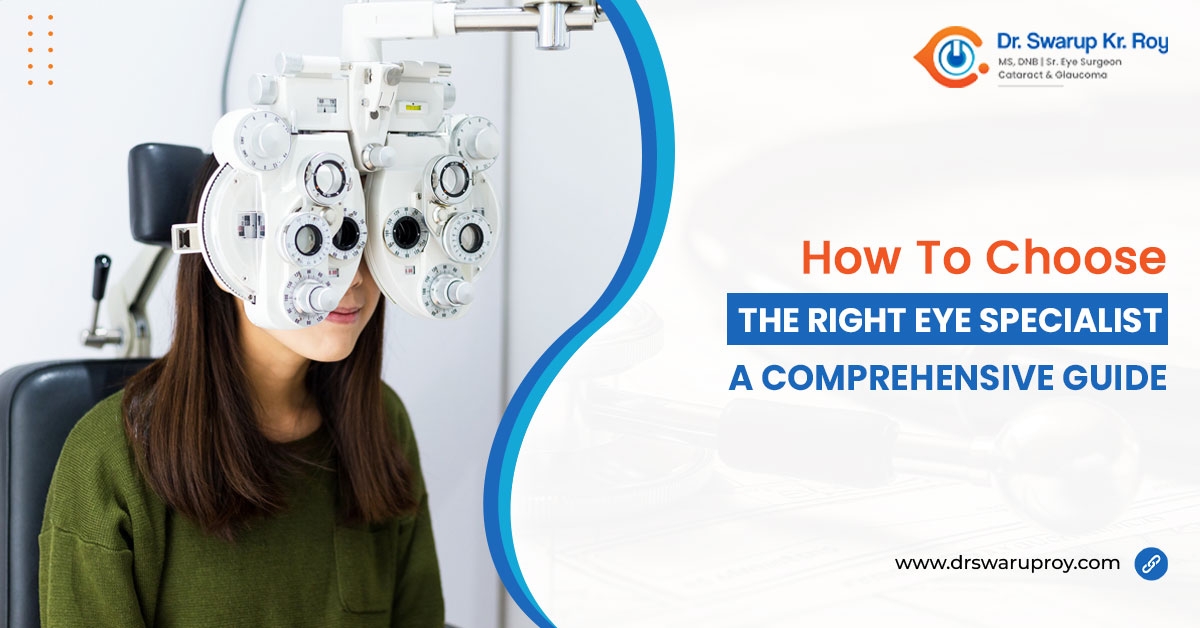8 Tips for a Smooth Recovery After Cataract Surgery
The clear lens of your eyes can cloud up and develop a cataract, which is more common in aged people. Surgery is one of the finest ways to address this eye problem successfully. Undergoing cataract surgery in Siliguri from a reputable eye hospital can be quick and painless, where a new intraocular lens is installed and the hazy lens is removed. In most cases, this successful operation can also correct near-sightedness or farsightedness in you while offering you clear vision quality.
After the procedure, it's normal to have red or watery eyes and a scratchy feeling in them, but these symptoms usually go away on their own. After surgery, you might need four weeks to recover properly, though most patients report seeing an improvement in their vision in a matter of days. You can shorten the recovery time and lower the risk of surgical problems by practicing good hygiene and following your doctor's post-operative recommendations.
Effective Tips For A Successful Recovery After Cataract Surgery
1. Avoid strenuous activities
After cataract surgery, it is always recommended to refrain from engaging in any vigorous activity. Any intense exercise, including lifting weights and bending down for longer periods might raise your intraocular pressure, which can eventually impede the healing process of the wounds. This is why you must always avoid these activities otherwise the surgical incisions will receive extreme pressure leading to delayed recovery.
In addition to exercising, it's advised to avoid bending over or carrying a child on your lap following surgery as these actions may cause eye trauma and elevated intraocular pressure. To speed up your recovery stage, doctors often recommend being extra careful while sneezing and vomiting so that any pressure provided in the operated eyes can be reduced. Contact the eye doctor before resuming any physical activities after the cataract surgery.
2. Save your eyes from any external trauma
One of the most crucial postoperative care instructions that you should adhere to is shielding your eyes from any irritation or harm. After the procedure, your eye may become extremely sensitive to outside allergens, so it is always preferable to use sunglasses when you are outside. This will shield your eyes from dust, pollen, or other particles and help you get over the symptoms of light sensitivity.
Even if you’re feeling scratchy in your eyes, you must avoid rubbing your eyes with dirty hands as it can expose the wounds to bacteria that will eventually increase the risk of developing infections. In most cases, the cataract surgeon in Siliguri recommends eye shields after the surgery. You must follow the orders of the doctor in wearing these shields. Herein, the doctor might also advise to wear these shields while sleeping for better protection.
3. Stay hydrated
Another crucial recommendation that you should go by before and after the procedure is to drink lots of water. It is common for you to have dry eyes following surgery, so drinking plenty of water will help you heal more quickly. Remember that the constant feeling of scratchy, stinging eyes that comes with dry eyes can cause extreme ocular irritation, which can prolong the healing process after surgery.
Your recovery process is highly dependent on the hydration levels which will also help you to mitigate the signs of dry eyes such as inflammation, light sensitivity, redness, and dryness. Remember to add almost 2-3 liters or as directed by the doctor for a successful recovery with minimal complications.
4. Reduce screen time
Recovering after cataract surgery must be accelerated by minimizing screen time. The doctor will always tell you to stay away from screens for two to three days following surgery, including your computer, television, and mobile phone. The severe pressure on your eyes caused by the light from electronic gadgets can postpone healing. Remember to wear glasses to safeguard your eyes whether you're using a device or reading a book.
Even after recovering from the surgery after 2-3 days, you must consider using any digital devices for a shorter period of time. Herein, you may also experience visual problems after the surgery which can worsen if you continuously pressure your eyes by exposing them to a blue screen. This post-operative care tip will help you avoid any serious eye complications after the surgery.
5. Take extra precautions while taking a shower
You should be very cautious after cataract surgery while submerging your eyes in water. This is due to the fact that exposure to water raises your risk of infection and ocular discomfort. Herein, the direct splash of water into your eyes can cause ocular trauma and slow the healing process. Before putting water in your eyes, you have to wait at least one or two days.
In this case, you should speak with your doctor before taking a hot tub or diving into the swimming pool. Remember that the doctor mostly recommends bathing normally but you must avoid the shampoo or soap residues to enter in the eyes. It is also vital to avoid splashing directly to the eyes as it can increase further discomfort. You can just wipe your face with normal water for the first weeks rather than splashing water in the face.
6. Avoid Driving
It is quite normal to experience light sensitivity, blurry vision, and swelling after the cataract surgery. These temporary side effects of the surgery will resolve within a few days and until these symptoms are reduced, you must avoid driving. It is also essential to note that it is not safe for you to drive immediately after the surgery.
You must take someone with you before the surgery so that they can help you reach home safely after you’re discharged. Depending on the results and speed of the surgery, the eye doctor may advise you to resume driving after 3 days and not before that. If you have a successful recovery, then you may experience improved visual acuity. This indicates that you will no longer need any corrective lenses while driving.
7. Schedule follow-up appointments
Never missing a follow-up appointment with your surgeon is another crucial piece of advice following cataract surgery. Following cataract surgery, the surgeon may schedule follow-up appointments on a weekly or monthly basis to assess the healing process. To assess the outcome of the procedure and identify any underlying issues early on, these routine eye exams are crucial.
Starting from detecting the warning signs for early intervention to addressing patient concerns, follow-up appointments may have various benefits for evaluating the healing process. You must note that missing any of these appointments can make you prone to develop some serious complications that may decrease the effectiveness of the surgery. Always remember to consult the doctor and check your vision to see whether the surgery was successful in your case or not.
8. Be aware of any post-surgical complications
As with any surgical procedure, there are potential hazards associated with cataract surgery. For this reason, following surgery, you should always be alert to any unusual symptoms. Get in touch with the top cataract surgeon right away for a prompt diagnosis if you have any concerning symptoms, such as nausea, blurred vision, floaters in your field of vision, or excruciating eye discomfort.
You should note that delayed complications can lead to long-term consequences to the eyes while causing severe surgical trauma and a lengthier recovery stage. Some other complications that you must always be aware of are lens dislocation, retinal tears, and cystoid macular edema. Ignoring these issues can cause your condition to worsen and decrease vision quality.
Along with following these measures, you must also follow the medication guidelines advised after undergoing cataract surgery in Siliguri. Various antibiotics and eye drops that have been prescribed need to be taken as directed as these medications play a vital role in making the recovery process successful.
Comments (0)





